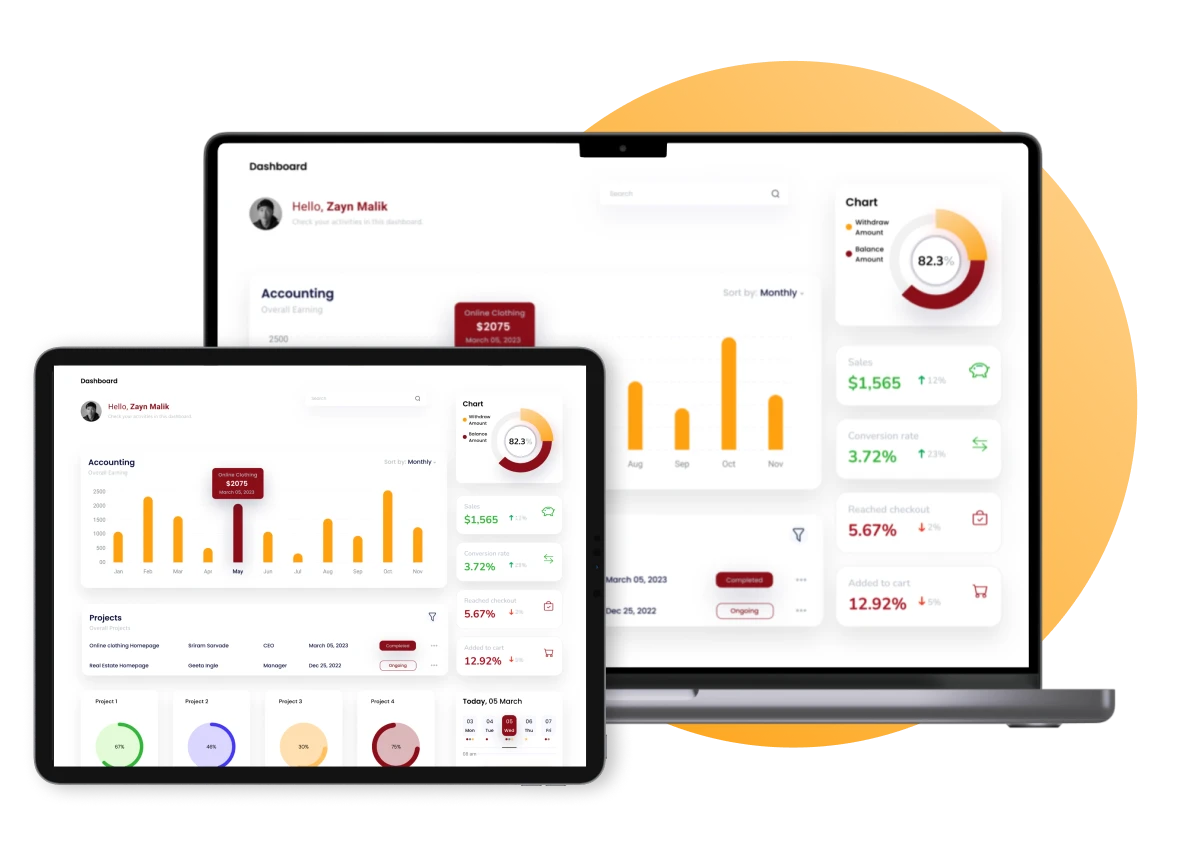Are you confident in your organization’s financial health? Many business leaders often face challenges in ensuring that financial operations are transparent, compliant, and aligned with strategic goals. Without proper oversight, organizations risk inefficiencies, compliance issues, and potential financial mismanagement.
In fact, a report by the Accounting and Corporate Regulatory Authority (ACRA) found that 85% of proposed audit adjustments were made to correct factual errors in the financial statements of listed companies in Singapore. This highlights the critical importance of robust financial oversight mechanisms.
Implementing effective financial oversight is essential. It involves systematic monitoring and management of financial activities to ensure accuracy, compliance, and alignment with organizational objectives. This oversight helps in identifying potential risks, improving decision-making, and fostering trust among stakeholders.
In this article, we’ll explore the definition of financial oversight, its types, benefits, challenges, and strategies for effective implementation. Understanding these aspects can empower organizations to strengthen their financial governance and achieve long-term success.
Key Takeaways
|
What is Financial Oversight?
Financial oversight involves managing and reviewing an organization’s finances to ensure proper, efficient, and compliant budgeting, accounting, and reporting. It ensures resources are used effectively to meet organizational goals.
Beyond just monitoring finances, financial oversight helps in detecting discrepancies, managing risks, and preventing fraud. By regularly auditing and evaluating financial practices, organizations can maintain stability and improve performance. Additionally, it plays a vital role in enhancing transparency within the organization.
As businesses grow, financial oversight extends to managing partnerships and financial relationships. This ensures that all transactions align with the company’s broader objectives. Automation tools enhance this process by providing real-time insights and streamlining reporting, enabling better decision-making.
How Does Financial Oversight Work?

Financial oversight is implemented through a well-organized framework that ensures all financial activities align with organizational goals. First, boards or committees are tasked with overseeing the company’s financial activities, providing strategic guidance and accountability.
Next, businesses develop financial policies that set clear guidelines and expectations for financial management. These policies should be in line with the company’s objectives and regulatory standards. Regular monitoring and reporting of financial statements help track performance and identify potential issues.
Auditing is another crucial component, as it verifies compliance and highlights areas for improvement. Auditors evaluate financial records to ensure accuracy and identify risks. Finally, continuous improvement is achieved by updating policies and procedures based on audit results and the changing needs of the business.
Benefits of Financial Oversight
Effective financial oversight provides numerous advantages to businesses, ensuring that financial practices align with organizational goals. Below, we’ll explore some of the key benefits that come with maintaining strong financial oversight and how they contribute to a healthier financial future for organizations.
1. Enhanced decision-making
First and foremost, accurate financial information enables businesses to make well-informed decisions. With a clear picture of their financial situation, organizations can align their goals with available resources, which in turn supports strategic planning and long-term success.
2. Optimized resource allocation
Another important benefit of financial oversight is the efficient allocation of funds. By ensuring that resources are distributed in line with the organization’s objectives, businesses can avoid wasteful spending and better prioritize areas that drive growth.
3. Fraud prevention
Regular monitoring and oversight reduce the likelihood of financial misconduct. By keeping track of financial transactions and implementing strict controls, organizations can prevent fraud and ensure financial security.
4. Building stakeholder trust
Demonstrating financial integrity through robust oversight builds trust with stakeholders, including donors, investors, and the public. Transparency in financial activities fosters confidence and encourages further investment and support.
In addition, businesses in Singapore can ease the cost of implementing financial oversight by utilizing the 70% CTC (Capability Transfer Credit) grant. This grant helps organizations access advanced tools like HashMicro’s financial software, making it more affordable to optimize financial management practices.
Key Challenges of Financial Oversight
Despite its importance, implementing effective financial oversight presents various challenges for organizations. Some of the primary obstacles include complexity, resource constraints, internal resistance, and issues with data management. Let’s explore each challenge in detail.
1. Complexity of financial systems
Managing complex financial systems and staying updated with changing regulations can be overwhelming. Businesses often face a dynamic financial landscape that requires continuous adaptation. Many companies turn to top accounting software to navigate this complexity and streamline their reporting processes.
2. Limited resources
In many cases, businesses face a shortage of skilled personnel or expertise to manage financial oversight effectively. Without adequate resources, organizations struggle to conduct regular audits, track performance, and ensure regulatory compliance. This increases the financial risk and undermines oversight effectiveness.
3. Internal resistance to new processes
When new oversight procedures are introduced, they can meet with internal resistance. Employees may be hesitant to change established methods, which can delay the adoption of new technologies or processes. Overcoming this resistance is essential for improving financial management and efficiency.
4. Challenges in data management
Accurate and timely data collection is crucial for financial oversight but can be a significant challenge. Managing large volumes of financial data requires robust tools and systems. Without the right solutions in place, businesses may struggle to maintain data accuracy and manage financial performance effectively.
What Are the Key Strategies for Effective Financial Oversight?

To ensure effective financial oversight, organizations must establish clear financial policies and procedures. These guidelines should align with the company’s goals and regulatory standards. Additionally, regular internal and external audits are crucial for assessing financial practices and identifying potential improvements.
Ongoing financial training for board members and staff is also essential. It keeps everyone updated on best practices in financial management. Finally, implementing financial management software improves accuracy and streamlines processes, supporting overall financial oversight.
Types of Financial Oversight
Financial oversight can be divided into two main categories: internal and external. Both types play a crucial role in ensuring that an organization’s financial operations are conducted properly and in compliance with applicable standards.
Internal oversight is carried out by internal staff or committees, ensuring that daily financial activities comply with company policies and goals. This helps organizations maintain control over their operations and make timely adjustments when necessary.
In contrast, external oversight involves independent auditors or regulatory bodies. These third-party entities ensure that organizations comply with legal standards, providing an objective evaluation of financial practices to enhance transparency and accountability.
Best Practices for Effective Financial Oversight
Effective financial oversight requires a structured approach to ensure transparency, accountability, and compliance. Implementing best practices in financial management can help organizations maintain financial health and reduce risks. Here are some key practices that enhance financial oversight:
1. Define roles clearly
Assign specific oversight responsibilities to qualified individuals within the organization. A clear role definition ensures that everyone understands their responsibilities and contributes to efficient financial management.
2. Maintain transparency
Openly sharing financial information with stakeholders fosters trust and accountability. Transparency in financial reporting allows stakeholders to stay informed about the organization’s financial health and performance.
3. Regular training
Keep both staff and board members well-informed about financial policies and procedures. Regular training ensures that everyone is up-to-date with the latest financial regulations and best practices, supporting more effective oversight.
4. Implement checks and balances
To prevent any single individual from having unchecked control over financial processes, establish checks and balances. This ensures that multiple individuals or departments are involved in key financial decisions, promoting accuracy and reducing the risk of fraud.
How to Improve Financial Oversight with HashMicro Accounting Software

Managing finances can be complex, particularly with various operational costs, payroll, and interest expenses to consider. HashMicro Accounting Software simplifies financial management by providing real-time insights into cash flow, debt, and profitability, empowering businesses to make more informed decisions.
The software features comprehensive tools, including:
- Bank Integration – Auto Reconciliation: Automatically sync bank transactions and reconcile accounts seamlessly, saving time and reducing manual errors in financial processes.
- Multi-Level Analytical Tools: Gain deeper financial insights with customizable, multi-level analysis tools, allowing businesses to track performance across departments or projects with precision.
- Profit & Loss vs. Budget & Forecast: Compare actual profit and loss against your budget and forecast, enabling better tracking of financial goals and improved decision-making.
- Cash Flow Reports: Monitor cash inflows and outflows in real-time, ensuring liquidity and helping you plan for future expenses effectively.
- Forecast Budget: Create accurate budget forecasts with advanced predictive tools, helping you anticipate future financial trends and align your strategies accordingly.
By utilizing HashMicro accounting software, businesses can enhance their risk management capabilities and make informed decisions to control financial risk.
Conclusion
In conclusion, financial oversight plays a crucial role in maintaining the financial health of any organization. By implementing effective oversight strategies, businesses can optimize performance, minimize risks, and ensure compliance with regulations.
With the help of HashMicro accounting software, businesses can streamline their financial management. The software offers real-time cash flow monitoring, budget forecasting, and automated reconciliation, making it easier to manage financial risk and performance.
Take the first step toward complete financial control and streamlined interest management. Schedule a free demo with HashMicro today to see how effortless automated accounting can be.
FAQ about Financial Oversight
-
What is another name for financial oversight?
Another term commonly used for financial oversight is financial governance. This term emphasizes the management and control of financial activities within an organization to ensure accountability, compliance, and transparency in decision-making.
-
What is the financial reporting oversight role?
The financial reporting oversight role refers to the responsibility of reviewing and supervising the accuracy of an organization’s financial statements. This role ensures that the financial reports comply with legal and regulatory standards, providing transparency to stakeholders.
-
What is another term for financial performance?
Financial performance can also be referred to as financial health or financial well-being. These terms assess an organization’s ability to generate profits, manage expenses, and sustain growth, helping stakeholders understand the company’s financial stability.
-
What does lack of oversight mean?
A lack of oversight means that there is insufficient monitoring or supervision of an organization’s financial activities. This can lead to inefficiencies, increased risks, and potential financial misconduct, as there are no systems in place to ensure transparency or compliance with regulations.


































